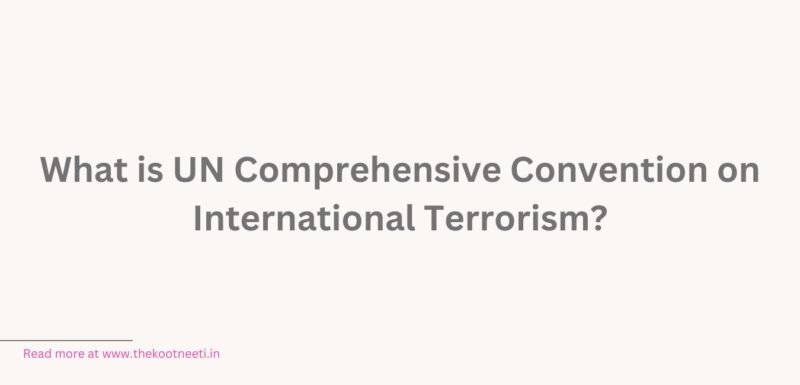What is UN Comprehensive Convention on International Terrorism?

The United Nations Comprehensive Convention on International Terrorism (CCIT) is a proposed treaty aimed at criminalizing all forms of international terrorism and providing a legal framework for international cooperation in countering terrorism. The CCIT was first proposed by India in 1996, but negotiations on the text of the convention have been ongoing for more than two decades.
The purpose of the CCIT is to provide a comprehensive definition of terrorism that would be universally accepted and to create a legal framework that would allow countries to work together to prevent and suppress acts of terrorism. The convention seeks to ensure that terrorists are not able to evade justice by crossing international borders or seeking refuge in another country. It also aims to ensure that terrorist financing is criminalized and that countries work together to prevent the financing of terrorism.
Despite repeated attempts to finalize the convention, negotiations have been stalled due to disagreements over the definition of terrorism, the treatment of national liberation movements, and the relationship between the CCIT and existing international law. Nonetheless, the adoption of the CCIT remains an important goal for many countries seeking to strengthen the legal framework for countering terrorism.


















